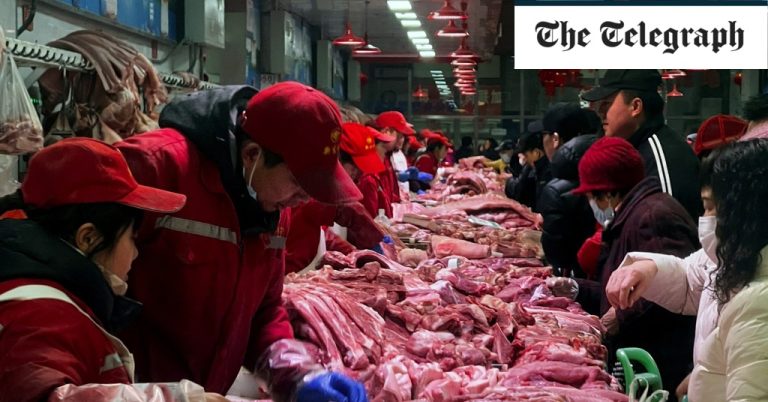China’s suffered its sharpest fall in consumer prices since the global financial crisis as Beijing scrambles to revive the fortunes of the world’s second largest economy.
The National Bureau of Statistics announced the country’s consumer prices index fell by 0.8pc in January, marking the fourth straight month of deflation and the steepest fall since 2009.
Deflation is a threat because falling prices can lead consumers to hold off spending, slowing down economic growth, reducing incomes and threatening recession.
China’s fall, which was larger than the 0.5pc forecast by analysts, comes as Beijing tries to kickstart growth amid a property crisis, soaring youth unemployment and a global slowdown that is hammering demand for Chinese goods.
Policymakers have in recent months announced a series of targeted measures as well as a major issuance of billions of dollars in sovereign bonds, aimed at boosting infrastructure spending and spurring consumption.
Zhiwei Zhang, president and chief economist at Pinpoint Asset Management, said: “China needs to take actions quickly and aggressively to avoid the risk of deflationary expectation to be entrenched among consumers.”
China slipped into deflation in July for the first time since 2021 and, apart from a brief rebound in August, have been in constant decline since.
Lynn Song, chief economist for Greater China at bank ING, said: “The primary drag on inflation continued to be food prices, which fell by 5.9 percent year-on-year, the lowest level on record.”
Read the latest updates below.
